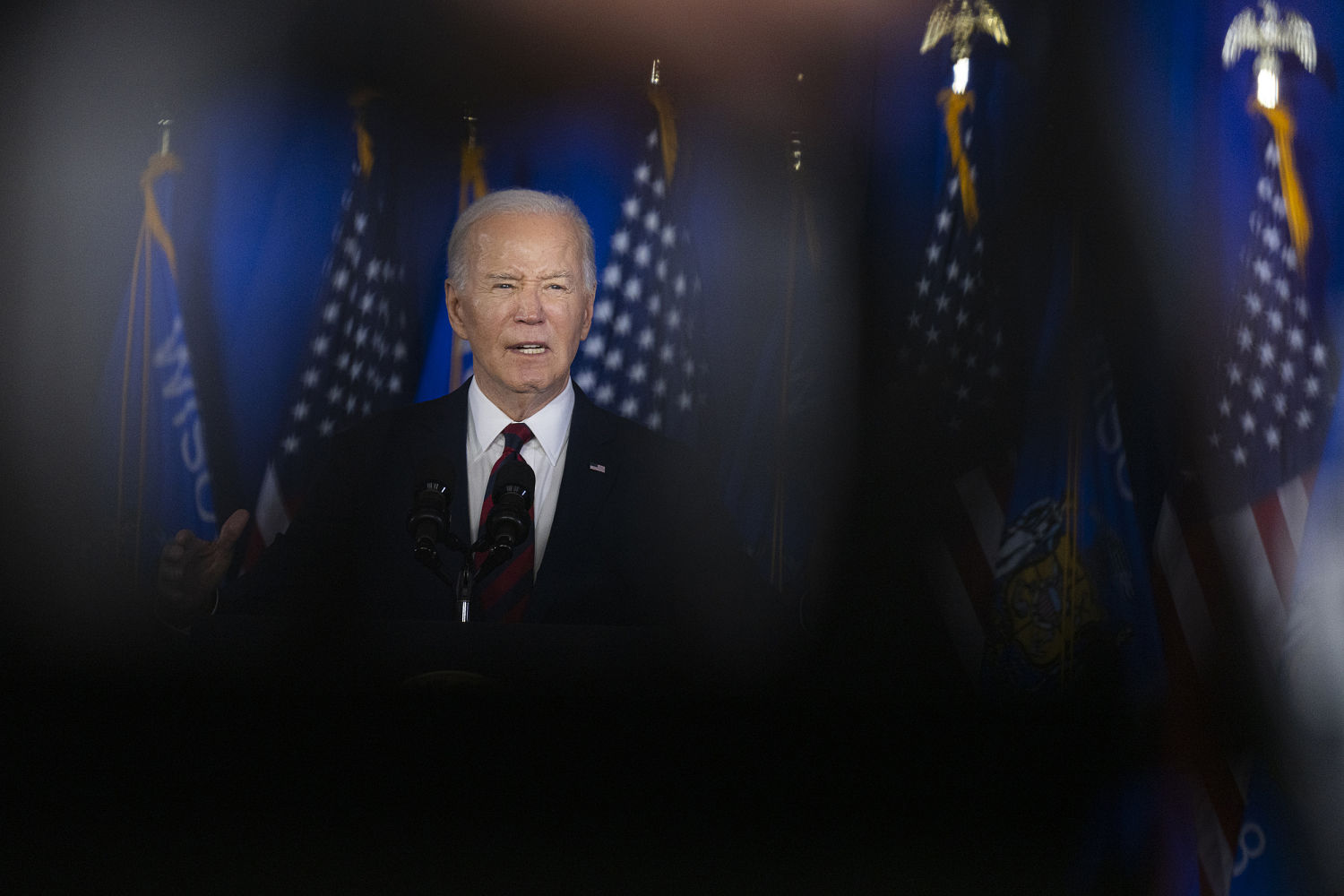WASHINGTON — President Joe Biden spoke Monday with Israeli Prime Minister Benjamin Netanyahu, the White House said, as Israel’s planned invasion of Rafah widens the grown gap between the two leaders.
The two leaders last spoke over a month ago, on Feb. 15. The White House said they discussed the situation in Rafah, a city in the southern Gaza Strip along Egypt’s border, and efforts to increase humanitarian aid to Palestinians among the latest developments in Israel and Gaza.
National Security Adviser Jake Sullivan is scheduled to appear at the White House press briefing Monday and is expected to discuss the call between Biden and Netanyahu.
The conversation comes just days after Senate Majority Leader Chuck Schumer — the highest-ranking Jewish U.S. official — called for Israel to hold new elections to replace the Israeli prime minister.
Monday’s call was the 20th between Biden and Netanyahu since Hamas’ brutal assault on Israel on Oct. 7. It also marks the longest gap between calls — 32 days. Previously, the longest the two had gone without speaking was 26 days, between Dec. 23 and Jan. 19.
Meanwhile, the White House is considering how to respond if the Israeli government ignores the administration’s warnings not to launch a ground invasion in Rafah, without a credible plan for Palestinian civilians. Last week, his office said that he approved plans for a ground offensive there and that the military was “preparing for the operational side and for the evacuation of the population.”
Rafah was the main focus of Biden’s February call with Netanyahu, the White House said.
Biden’s relationship with the Israeli leader has been on shaky ground for months as he faces pressure from the progressive wing of the Democratic Party over U.S. support for Israel as tens of thousands of Palestinians have died in Gaza. Biden said in a recent interview with MSNBC’s Jonathan Capehart that an invasion of Rafah by the Israel Defense Forces would be a “red line” for him, though he said he would never leave Israel’s side.
“There’s no red line where I would cut off all weapons so they don’t have the Iron Dome to protect them,” he said. “But there’s red lines where if he crosses them … he cannot have 30,000 more Palestinians dead,” he added, referring to Netanyahu.
Biden didn’t elaborate on any potential consequences if Israel does invade Rafah.
“There’s other ways to deal, to get to, to deal with the trauma caused by Hamas,” he said.
Last week, Schumer said in a speech on the Senate floor that Netanyahu has “lost his way” and called for new elections to replace the Israeli leader and his far-right governing coalition. It was met with criticism from Republicans and some Democrats.
Biden said it was a “good speech and that Schumer “expressed a serious concern shared not only by him but by many Americans.”
Netanyahu rejected Schumer’s proposal in an interview Sunday on CNN’s “State of the Union.”
“I think what he said is totally inappropriate,” the Israeli prime minister said. “It’s inappropriate to go to a sister democracy and try to replace the elected leadership there. That’s something that Israel, the Israeli public does on its own, and we’re not a banana republic.”
Source: | This article originally belongs to Nbcnews.com












